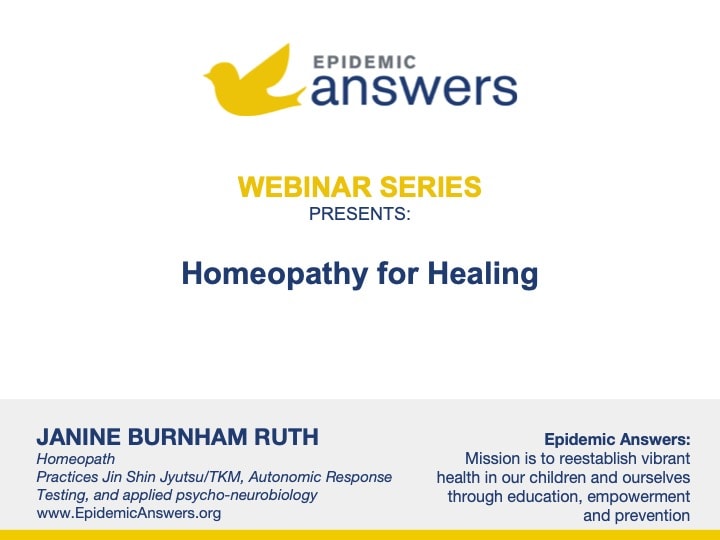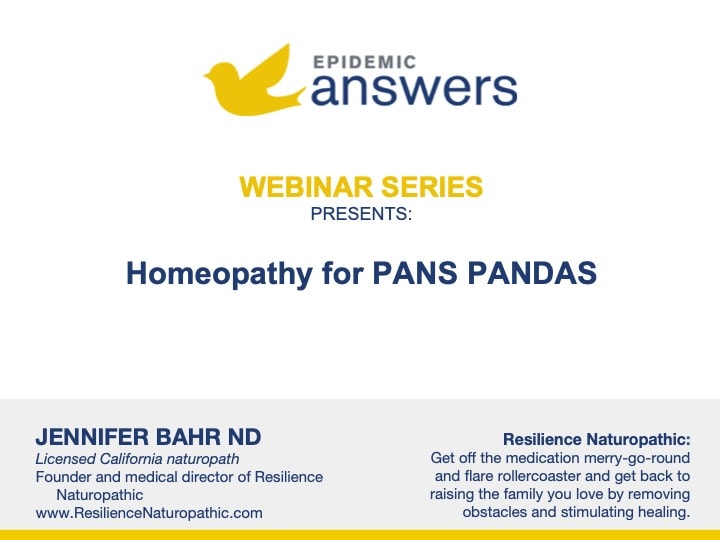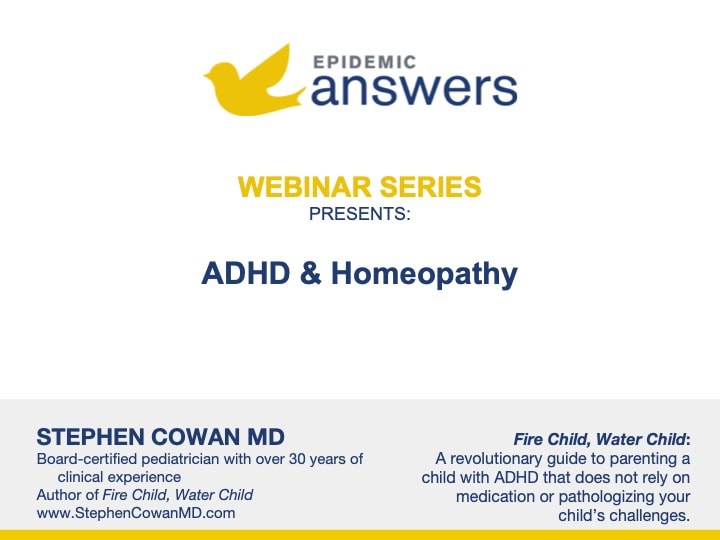By Amy Rothenberg, ND (Dr. Rothenberg and her husband, Dr. Paul Herscu, practice together in Enfield, CT.)
In the last few decades, a significant number of children have been diagnosed with ADD, ADHD and autism. Many professionals believe that the number of these children is actually increasing.
Of the many approaches available to help children function better at home, school and in the community, natural and alternative treatments are gaining mainstream attention. People are attracted to these treatments because of the lack of negative side effects.
Multi-Factorial Approach
As a naturopathic physician, I use a multi-factorial approach to treating children. First, a good diet and nutrition are essential for optimal functioning. This can be achieved by the removal of food and environmental allergens and supplementation.
Second, I encourage my patients to work within a psychologically supportive framework, using an approach team that involves the whole family. Both of these modalities enhance the action of homeopathy.
What Is Homeopathy?
Homeopathy is a medical art and science which uses small doses of natural substances to stimulate a patient’s own inherent healing abilities. It is practiced by many types of health care professionals, some of whom are physicians who combine it with allopathic techniques and treatments. The homeopath strives to understand each patient’s unique mental, emotional, and physical make-up, aiming always for an individualized treatment.
I view a person’s health as a condition of the whole individual, rather than in terms of the presence or absence of isolated symptoms. Homeopathic remedies are selected which best correspond to the person’s total state.
The job of the homeopath is to match the symptoms/behaviors of a child to a remedy that has cured exactly the same state in others. The remedy may be given once or repeated over a period of time. It is thus very important to know exactly how the child is most challenged, how the difficulties are manifested (as learning, behavior, emotional, or impulse control problems, for instance) and what techniques have worked, and which have not.
Homeopathy and Autism, ADHD and Other Developmental Delays
I want to know the most troubling symptoms and what makes them better or worse, what medications have been used and how they have been tolerated, and if there were any external events which seem to bring about the problems.
I review the overall health of he child, including the function of all major body systems: respiratory, digestive, sleep, and elimination. This exploration often reveals certain tendencies that aid in selecting a homeopathic remedy.
Finally, I look at the results of any psychological, neurological or educational evaluations and relevant medical records. It is very important to do a thorough exam as there are approximately 5,000 remedies.
In order to be effective, I need to fine the one that best matches the specific way the child manifests symptoms. The overall profile of the child helps me make an educated choice among the ones available.
Treating the Whole Person
Diagnosis is not essential in using homeopathy because it is the whole person, not a diagnosis that is being treated. Homeopathic treatments have been shown to be very effective for children who have any of the diagnoses mentioned earlier, as well as failure to thrive, depression, anxiety, sleep disturbances, Tourette’s Syndrome and epilepsy. Although certainly not a cure-all, the vast majority of patients see some improvement, which are often very significant.
Still Looking for Answers?
Visit the Epidemic Answers Practitioner Directory to find a practitioner near you.
Join us inside our online membership community for parents, Healing Together, where you’ll find even more healing resources, expert guidance, and a community to support you every step of your child’s healing journey.
Resources
Books
Cowan, Stephen Scott. Fire Child, Water Child: How Understanding the Five Types of ADHD Can Help You Improve Your Child’s Self-Esteem and Attention. New Harbinger Publications, 2012.
Dean, Carolyn. Homeopathic Remedies for Children’s Common Ailments. Keats Publishing, 1995.
Herscu, Paul. The Homeopathic Treatment of Children: Pediatric Constitutional Types. North Atlantic Books, 1991.
Herscu, Paul. Stramonium: With an Introduction to Analysis Using Cycles & Segments. New England School of Homeopathy Press, 1996.
Reichenberg-Ullman, Judyth, et al. A Drug-Free Approach to Asperger Syndrome and Autism: Homeopathic Care for Exceptional Kids. Prima Publishing, 1996.
Reichenberg-Ullman, Judyth, et al. Ritalin-Free Kids: Safe and Effective Homeopathic Medicine for ADHD and Other Behavioral and Learning Problems.




